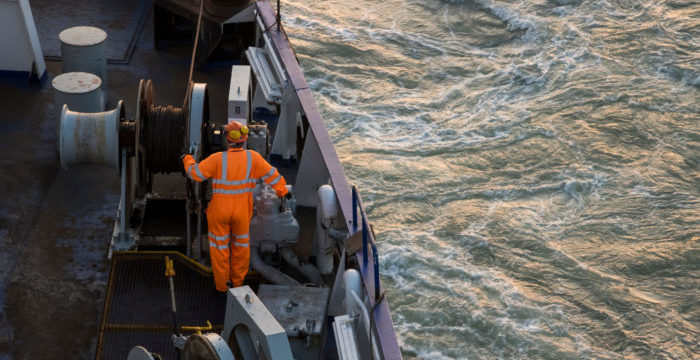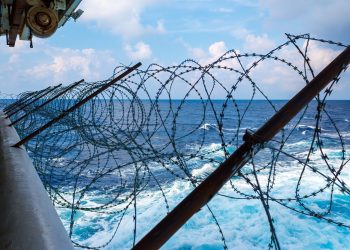COVID-19 has exposed how many countries were ‘shockingly underprepared’ for the challenges a global pandemic brings, said Mark Dickinson, general secretary of Nautilus International.
The remarks took place as part of a webinar discussion on COVID-19 and the impact on maritime labour co-organised by the ILO and the International Training Centre of the ILO, in collaboration with the IMO and the World Health Organization (WHO).
As he explained, the reaction from governments worldwide saw measures that failed to appreciate the crucial role that shipping and seafarers play in the global economy.
Countries [closed] their borders, airlines were grounded, embassies closed their consular services, ports limited their services and port and flag state control officials were unable to validate or check ships certificates or the working and living conditions of seafarers,
…he said.
In addition, despite their crucial role, seafarers have been ostracised and treated as if they are carriers of this disease, he noted.
To address this, unions and ship owner representatives worked together to create detailed protocols to address concerns about protection, safe travel, air and port corridors, financial resources, accommodation and secure identity of seafarers.
Having been endorsed by the IMO and the ILO, protocols make the force majeure arguments for contract extensions redundant, he said.
As such, Mr Dickinson called for Flag States to return to the proper implementation the Maritime Labour Convention (MLC) and allow crew changes and repatriation to take place “before a marine disaster occurs because of overstretched and exhausted crews.”
On her part, Corinne Vargha, director of International Labour Standards Department at the ILO, called on governments to urgently adopt all possible measures to facilitate crew change and the repatriation of seafarers whilst taking steps to ensure and minimize the risk of contagion.
Any extension of the period [seafarers spend] onboard should be accompanied by appropriate safeguards to avoid any risk of abuse. This includes ensuring the consent of seafarers, no loss of annual leave rights and ensuring that shipowners are liable for the costs sickness benefits for those who contract the virus and those who have to undergo a quarantine period,
…added Beatriz Vacotto, head of the maritime unit, ILO.




























































